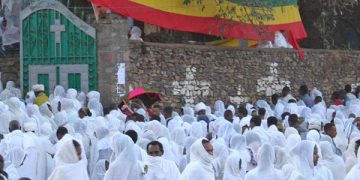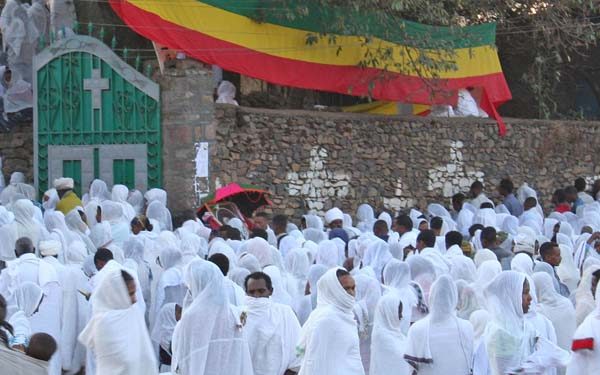Two months after the ceasefire agreement, crowds of Ethiopian Orthodox flocked to the town of Lalibela to celebrate Christmas in the hope of a long-awaited reconciliation.
After two years of devastating war in northern Ethiopia between the federal government and rebels in the Tigray region, Africa’s largest Christian site returned to the excitement and fervor of Genna, a major religious festival.
A white tide of tens of thousands of worshippers of all ages, draped in their immaculate netela (white shawl covering head and shoulders), invaded the city of Lalibela, which is home to 12th and 13th century churches carved into the rock and classified as a UNESCO World Heritage Site.
In recent years, the crowds have been much smaller. This town in the Amhara region is only about 40 kilometers as the crow flies from Tigray, where a conflict between the government and rebels began in November 2020, spreading for a time to neighboring regions.
Lalibela has been at the heart of a fierce struggle for several months, changing sides four times.
Taken by the Tigrayan rebels during an offensive in mid-2021, it was recaptured by pro-government forces on 1 December 2021 before falling back into the hands of the Tigrayan fighters ten days later. The latter finally left it at the end of December, after announcing their withdrawal to Tigray.
Prime Minister Abiy Ahmed sent troops into the northern region after accusing its ruling party, the Tigray People’s Liberation Front (TPLF), of attacking army bases.
Estimates of casualties vary widely, with the United States saying that as many as half a million people have died.
The conflict also unleashed one of the world’s worst humanitarian disasters in recent times, displacing more than two million people and driving hundreds of thousands to the brink of famine.
An agreement signed on November 2 in Pretoria, South Africa provided for the disarmament of rebel forces, the re-establishment of federal authority in Tigray, the reopening of access to the region and a gradual resumption of humanitarian aid and the restoration of basic services (electricity, banking, transport, etc.).
The process shifted up a gear on December 22 when the two sides agreed to create a joint monitoring and compliance mechanism.
The African Union said it was also starting a mission to monitor the implementation of the peace deal.
Two AU representatives, former Kenyan leader Uhuru Kenyatta and Nigeria’s ex-president Olusegun Obasanjo, were in Mekele for the launch of the mission.
A federal delegation made their first visit to Mekele since the peace deal was signed, bringing along the CEOs of major corporations.
The national carrier Ethiopian Airlines resumed commercial flights between the capital Addis Ababa and Mekele after an 18-month shutdown.
Aid is starting to flow to the crippled region and some essential services are being restored. Mekele was hooked back up to the national grid on December 6, while the country’s biggest bank, the Commercial Bank of Ethiopia, announced on December 19 that financial operations had resumed in some towns. Telephone communications in Tigray have also started to be restored.



































